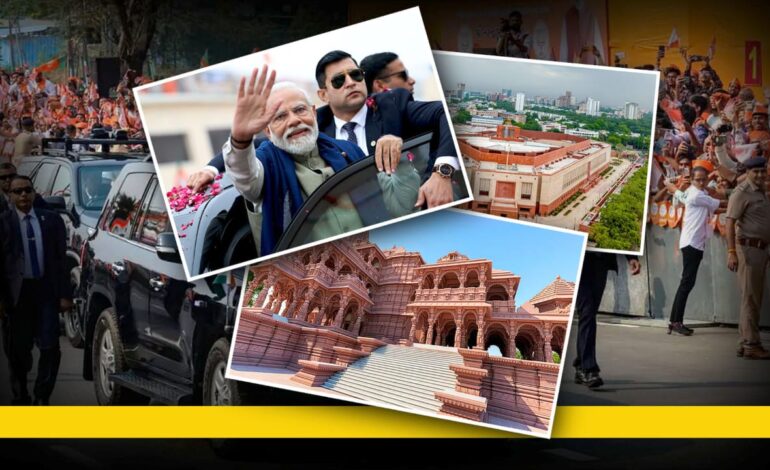
Commissioning of the New Parliament building on May 28, 2023, will always be seen as a pivotal marker on the political map of Independent India for more than one reason. Indeed, it marks a new beginning in the history of the Parliament’s infrastructure, its design and architecture. However, there is also the stark fact that since its inauguration, the Narendra Modi government has started brazenly demolishing the ethos of parliamentary democracy, signifying that the country is headed towards an electoral autocracy.
An ace editorial cartoonist Satish Acharya captured the irony underscoring the serial suspension of over 140 parliamentarians recently, showing “how it started” and where it is headed. A cartoon that he shared on X depicted two Narendra Modis. The first shows him as the prime minister-elect bowing on the steps of the main entrance of the old Parliament as a sign of respect as he arrived for the Bharatiya Janata Party ( BJP) parliamentary party meeting at Central Hall after the results of 2014 Lok Sabha elections were declared. The other Modi stands tall even as an image presented as the personification of the new Parliament bending at Modi’s feet, pleading with folded hands, “Please don’t suspend me.”
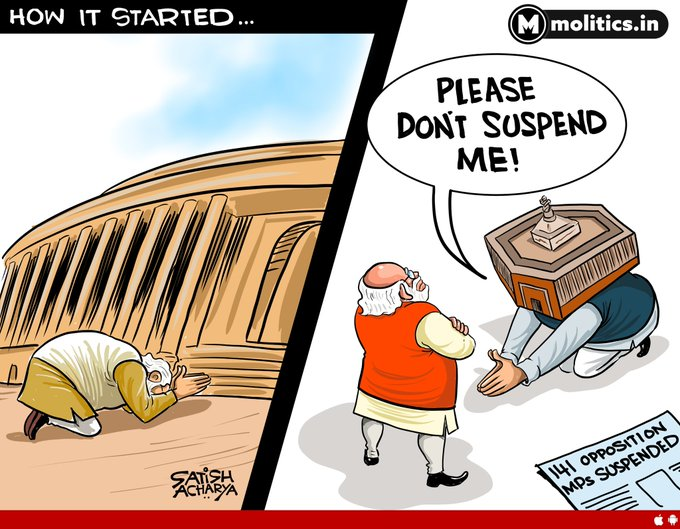
Both the Speaker of the Lok Sabha, Om Birla, and the chairman of Rajya Sabha, Jagdeep Dhankhar, who happens to be the Vice President of India, have increasingly been accused of functioning with a pronounced BJP bias. A recent viral video clip that showed Dhankhar’s servile body language before Prime Minister Modi is being widely discussed in this context. In his public speeches, Dhankar has been profusely praising PM Modi, compromising his constitutional position. In one such speech, he went to the extent of comparing Modi with Mahatma Gandhi, describing Modi as the “Yugpurush” of this century.
Earlier in September, Om Birla wrote in The Indian Express, highlighting the importance of Parliament and democracy. Modi praised it, saying, “He highlights how the Parliament has created a ‘symphony of democracy’ by embracing all shades of opinion with equal respect, while also standing up for constitutional values, national interest and the common good.” But following mass suspensions of MPs by the Speaker Lok Sabha and the chairman Rajya Sabha, the “symphony of democracy” seems to have turned to “cacophony of autocracy”, with growing concerns as to how Parliament is being purged of opposition voices, making way for passage of important bills without discussion.
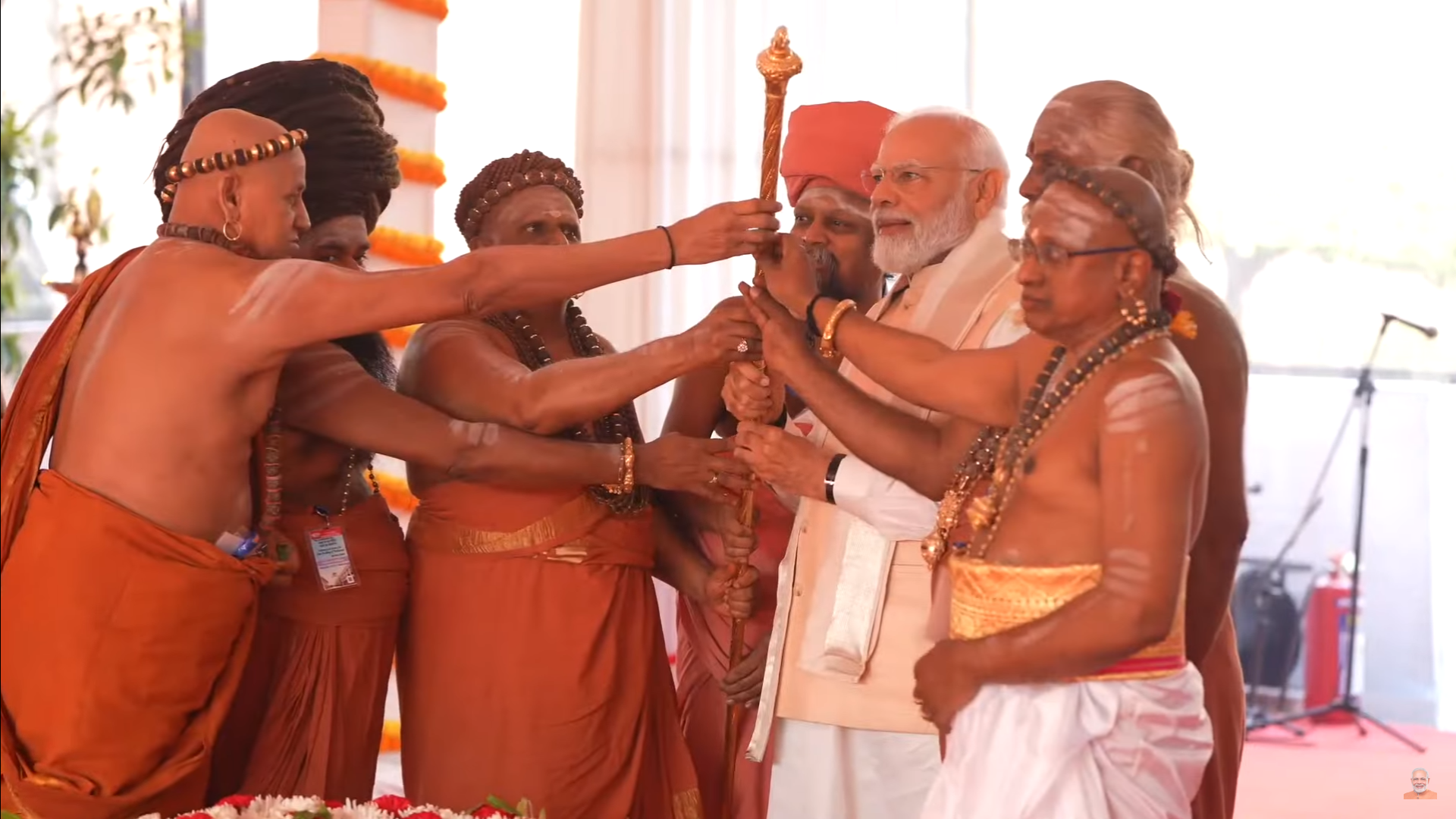
Significantly, it also demonstrates how the BJP and its self professed understanding of democratic values have changed down the decades. During the regime of the Congress led United Progressive Alliance (UPA), the late BJP leader Sushma Swaraj, then leader of opposition in the Lok Sabha, had remarked, “Not allowing Parliament to function is also a form of democracy, like any other form”. Similarly, her counterpart in the Rajya Sabha, Arun Jaitley, too had justified stalling of parliamentary proceedings, saying, “By disrupting Parliament, we have given out a message to the country.”
This winter session of the Parliament has provided a stunning reality check on the BJP. The ruling party under Modi and Amit Shah has proven that it no longer respects the place that it occupied in the Parliament before 2014. The establishment of “Sengol” in the Parliament House by PM Modi, which reinforced the ancient Chola dynasty tradition of handing over a sceptre to the new king, has cemented the projection of Modi’s image of a strong and powerful leader in a saintly charismatic avatar who has amplified the global profile of India. This image makes him immune to media and public scrutiny.
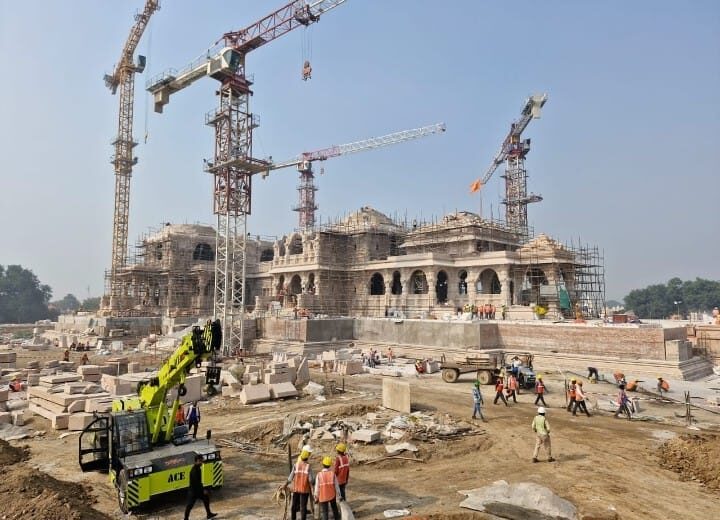
But the “wrecking” acts had manifested in other forms too in the new Parliament building even before the serial suspension of opposition MPs. South Delhi MP and BJP leader Ramesh Bidhuri had levelled communal slurs against former Bahujan Samaj Party (BSP) MP Danish Ali in the Lok Sabha in September 2023, as other BJP parliamentarians in the camera frame erupted in abhorrent laughter. This incident had evoked reactions of politically aware people from all walks of life. But shockingly, this abhorrent incident was met with silence by the Honourable President, the Prime Minister and the Lok Sabha Speaker of the country.
To come to yet another building or construction story Prime Minister Modi had, on August 5, 2000 laid the foundation stone for a grand temple to the Hindu god Ram in Ayodhya disregarding the surge of coronavirus cases in India at that point of time. This new temple was being built at the place where Babri Masjid, a Mughal-era mosque once stood. Modi equated that day with India’s Independence Day, August 15, 1947. While his presence at the site was a violation of constitutional ideals, the comparison undermined the legacy of the inclusive and secular character of the Indian independence movement.
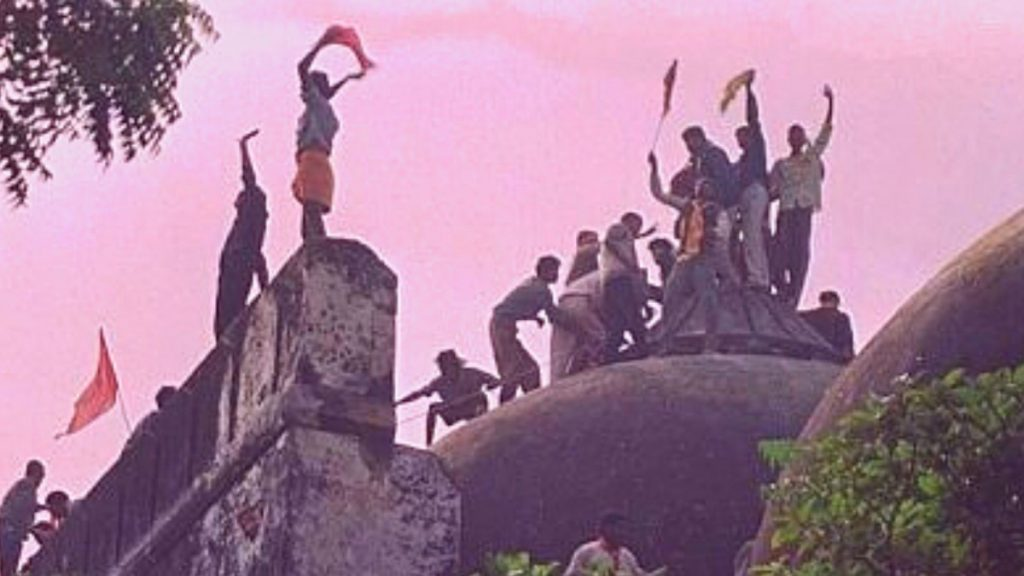
Now ahead of the 2024 Lok Sabha election, the BJP government at the centre and the State are racing against time to hold the consecration ceremony of the Ram Mandir in January 2024. With an eye on the upcoming Lok Sabha election, Modi is scheduled to attend the function, which is seen as a ceremony marking the establishment of “Hindu Rashtra”. The run up to this consecration event has started with the inauguration of the airport at Ayodhya on December 30, 2023 and Modi’s grand road show in the temple town. Clearly, all this is a part of a carefully constructed strategy to amplify Modi’s larger than life image.
As the second term of the BJP government at the centre draws to a close, it has seen many party leaders, ministers and even public figures and supporters like “Padam Shri” film-star Kangna Ranawat hailing Modi as an incarnation of God. Kangana made comments while she was leaving no stone unturned to save her recent film Tejas. In fact, she hosted a special screening for Uttar Pradesh Chief Minister Yogi Adityanth in Lucknow, and told the media, “CM Yogi Adityanath has assured us that he will support us and will motivate the nationalists to connect with the film…” PM Modi, who had endorsed the controversial , communal movie called “Kerala Story” during Karnataka assembly poll, apparently didn’t give any such assurance to Kangana despite her “pious” words that “India became independent in the real sense in 2014 after Modi became the prime minister”. On December 17, she met BJP national president Jagat Prakash Nadda, sparking off speculations that she could contest upcoming Lok Sabha polls on a BJP ticket.
Towards the end of 2023, the BJP won strategic victories in the Hindi heartland, deploying the “Modi ki Guarantee” tactic. However, the tribal population of Chhattisgarh’s Surguja district despite giving all the 14 assembly seats to the saffron party in the recently held election was in for a rude shock post election. Even though Modi had promised that the jal-jangal-zameen (water, forest and land) of tribals will be protected, the new BJP State government headed by the first tribal CM has gone ahead with mines’ expansion in the biodiversity-rich Hasdeo Arand region, part of the Parsa East Kente Basan (PEKB) Phase II mining projects awarded to Adani Enterprises Ltd (AEL). While Modi is criticised for showing favour to Gautam Adani, the former Chief Minister of Chhattisgarh, Bhupesh Baghel had warned during an election rally, “Agar kamal ka button dabaoge toh VVPAT se Adani niklega (If you press the lotus button on the VVPAT, Adani will emerge).”

Along with all this , 2023 has also witnessed a rising clamour for a new Constitution for India. Bibek Debroy, a member of the Prime Minister’s Economic Advisory Council, called for replacing the existing Constitution with a new one in an article he wrote for Mint. “Our current Constitution is largely based on the Government of India Act of 1935. In that sense, it is also a colonial legacy,” he wrote, although he later clarified that the article reflected his personal opinions. Similarly, Arghya Sengupta, a founding member of the Vidhi Centre for Legal Policy, a leading legal think tank, wrote in his book “The Colonial Constitution”, arguing once again that the existing constitution was heavily influenced by the Government of India Act 1935— which Jawaharlal Nehru termed as a “New charter of slavery” and Madan Mohan Malaviya termed as an attempt to take away whatever little freedom Indians had at that point of time.
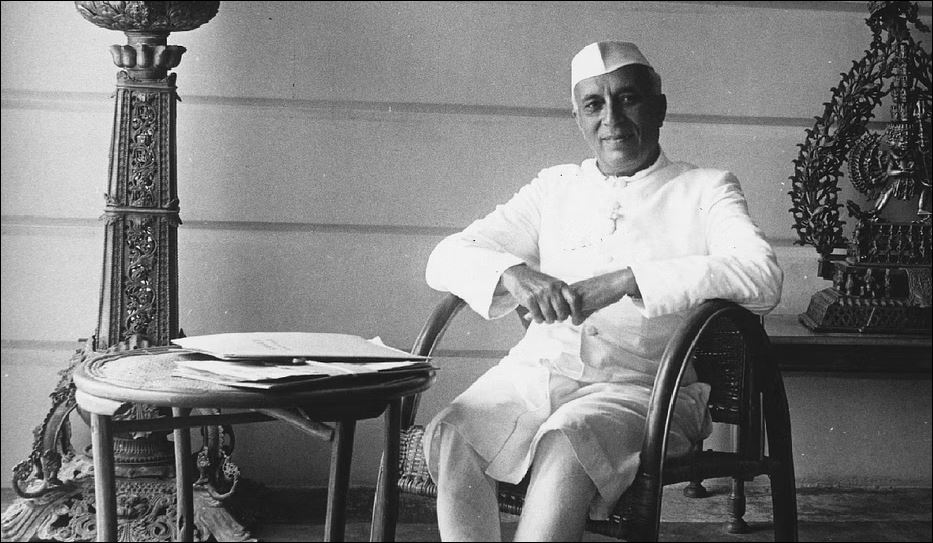
These so called new argumentations on the Indian Constitution are in essence a revival of some extreme and aggressive positions that the leadership of the Rashtriya Swayamsevak Sangh (RSS), the fountainhead of Hindutva oriented Sangh Parivar, of which the BJP is also a part, had held right from the time of the formation of the Indian Republic. “Guruji” MS Golwalkar, then Sarsangachalak of the RSS, had rejected the Indian Constitution right from its early days.
His argument was that “ our Constitution is just a cumbersome and heterogeneous piecing together of various articles from various Constitutions of Western countries.” “It has absolutely nothing, which can be called our own. Is there a single word of reference in its guiding principles as to what our national mission is and what our keynote in life is? No! Some lame principles from the United Nations Charter or from the Charter of the now defunct League of Nations and some features from the American and British Constitutions have been just brought together in a mere hotchpotch.”
An editorial in the “Organiser”, the RSS mouthpiece at that time went on to explain what the Sangh Parivar really meant by “our own” values. The editorial stated as follows. “In our constitution there is no mention of the unique constitutional development in ancient Bharat. Manu’s Laws (Manusmriti) were written long before Lycurgus of Sparta or Solon of Persia. To this day his laws as enunciated in the Manusmriti excite the admiration of the world and elicit spontaneous obedience and conformity. But to our constitutional pundits that means nothing”. So, ultimately the BJP and the Sangh Parivar and the “God Incarnate” would lead India to a Manusmriti world.
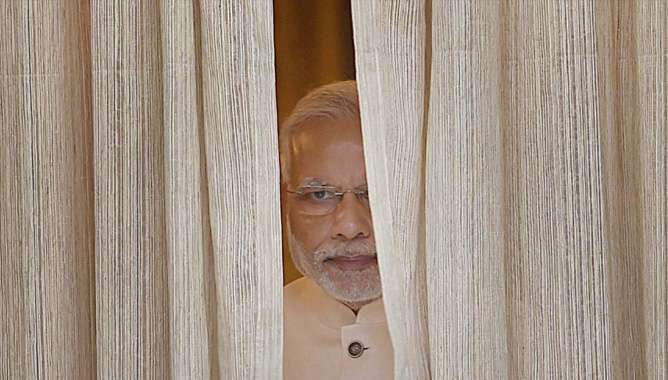
Though not directly related to the “ building and wrecking project of 2023” a comment by Avadh Ojha, a noted history teacher associated with Edtech platform Unacademy, brought out a black humour interpretation of the current state of affairs, especially the authoritarian tendencies of the Modi regime, marginalisation of the minorities and repudiation of the cosmopolitan way of life. “What is Modiji waiting for, he should scrap the Constitution. It is high time to wear a crown. Mughal dynasty has been removed from the syllabus, it is time for us to read about a new dynasty – Modi dynasty,” the teacher said during an online class. “How beautiful it is that they are abusing each other,” the teacher said and went on describing the new Parliament building as “Modi palace”, which many have derisively labelled as a “wedding cake” due to its architectural style.
“So what if Modi ji does not have any children. That’s not an issue at all. Muhammad Ghori too did not have. His commanders were his children,” he said. Since his comments came a month after Unacademy sacked an educator, Karan Sangwan, for impressing on his students to vote for educated candidates during elections, Avadh Ojha further commented sarcastically, “If Emergency is declared, I will cross Nepal border as it is near my hometown Gonda (in Uttar Pradesh).” The Unacademy website now describes Awadh Ojha as an ex-educator who is no longer associated with it. To recount the sacking of Karan Sangwan in August 2023, Unacademy took the action against the teacher after he had appealed to students to vote for educated candidates during a class, even though he didn’t mention any name or party. However, the teacher and the institution were under fire from right wing trolls ever since a video clip went viral, showing Kumar urging his students as he discussed bills tabled in Lok Sabha to replace British-era IPC, CrPC and Indian Evidence Act, “Don’t forget, when you vote next time, vote for someone who is well-educated, so you don’t have to go through this (ordeal) again. Elect someone who is educated and understands things. Don’t elect someone who only knows changing names. Decide properly.”
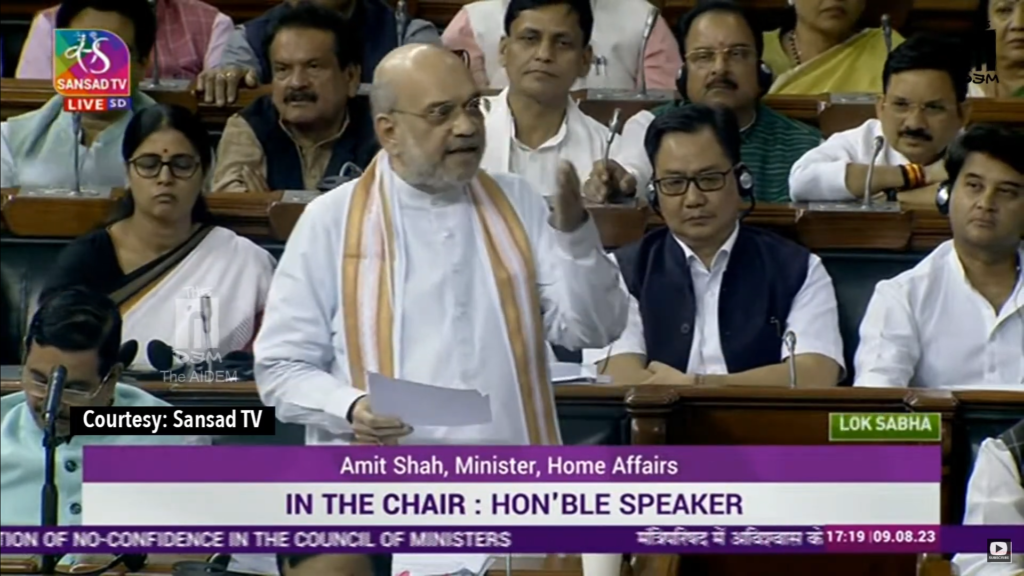
Unacademy has a reputation for preparing large number of young people for civil service examinations. In other words, giving coaching to become part of India’s bureaucracy and the administrative structures. In a way, with the removal of these teachers from the teaching squads, the educational institution was also saying that it has accepted the new writings on the wall with regard to wreckers,builders and the God Incarnate. Certainly, a solid foundation to the new-age civil servants who would become part of the ruling structure after the dismally epochal year of 2023.
To receive updates on detailed analysis and in-depth interviews from The AIDEM, join our WhatsApp group. Click Here. To subscribe to us on YouTube, Click Here.


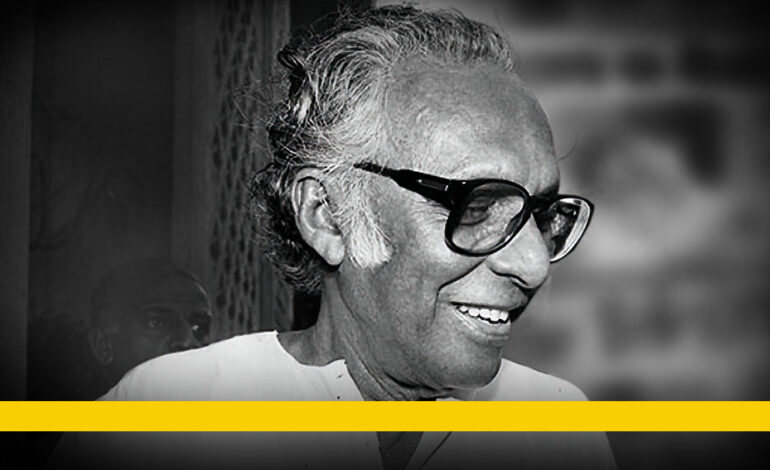
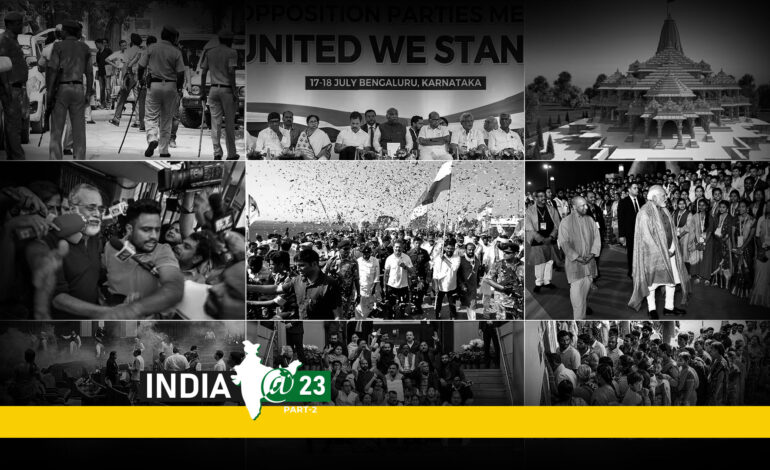
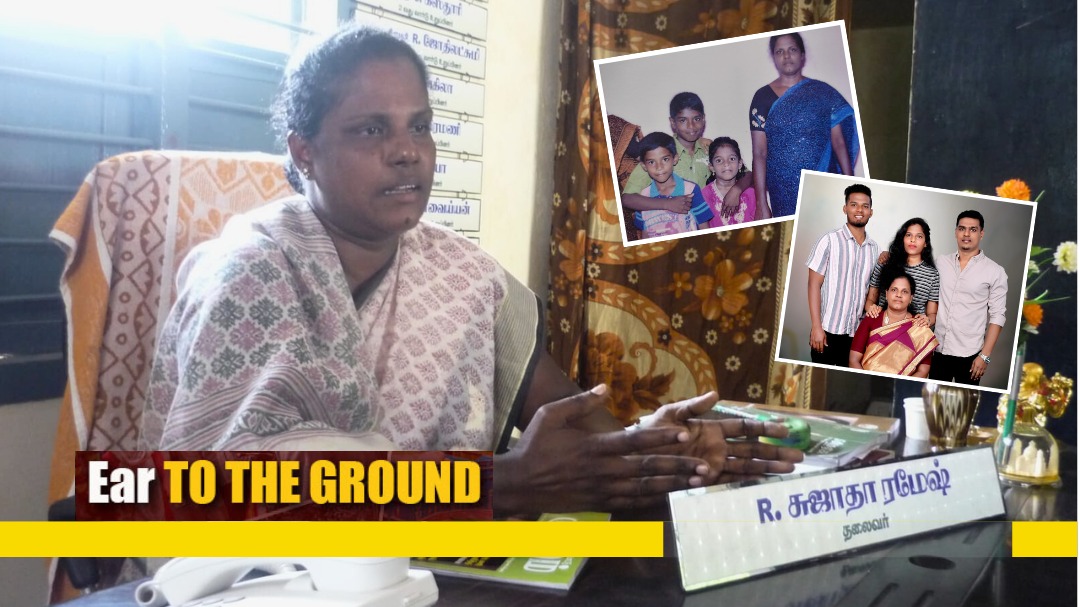
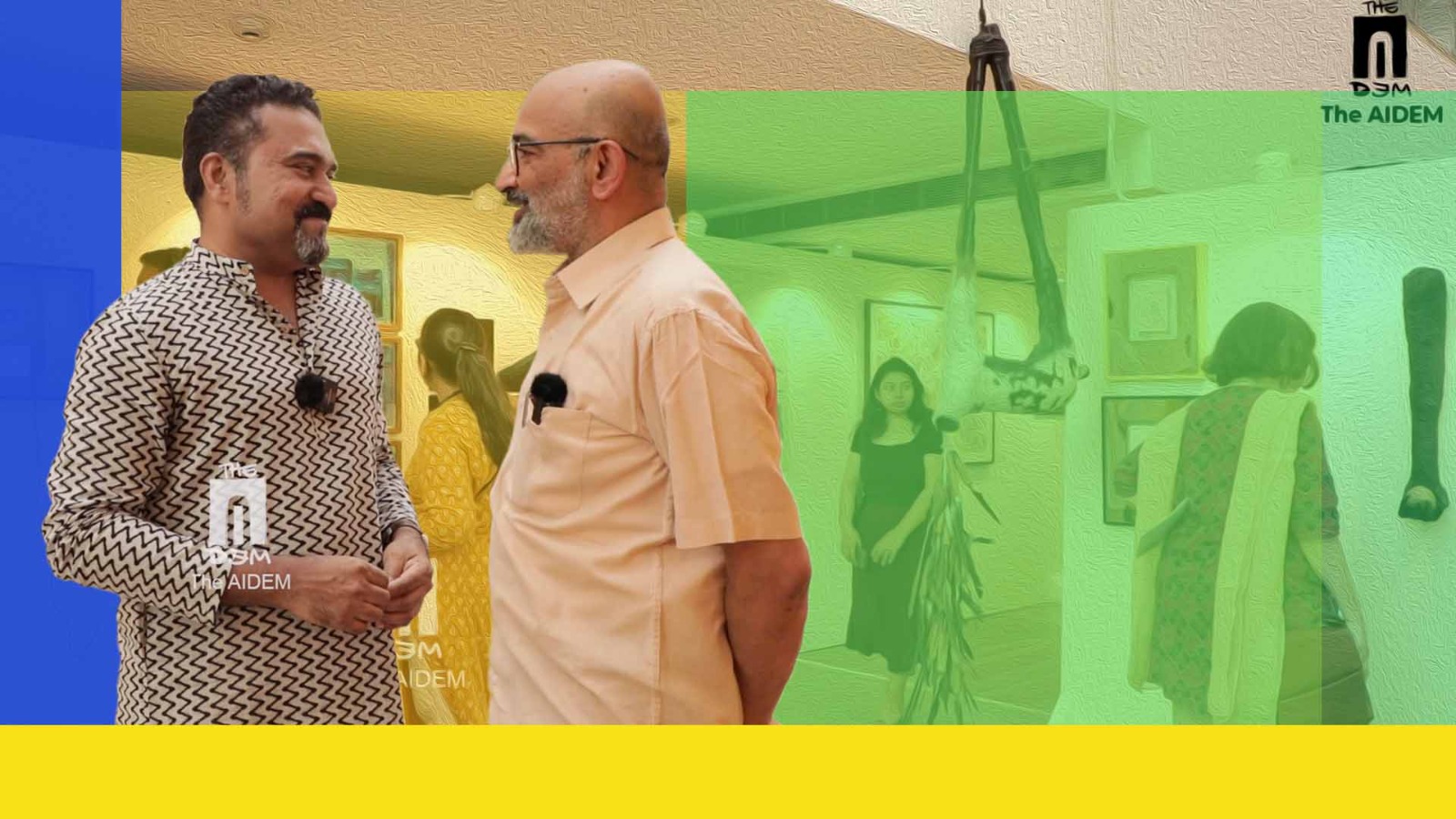
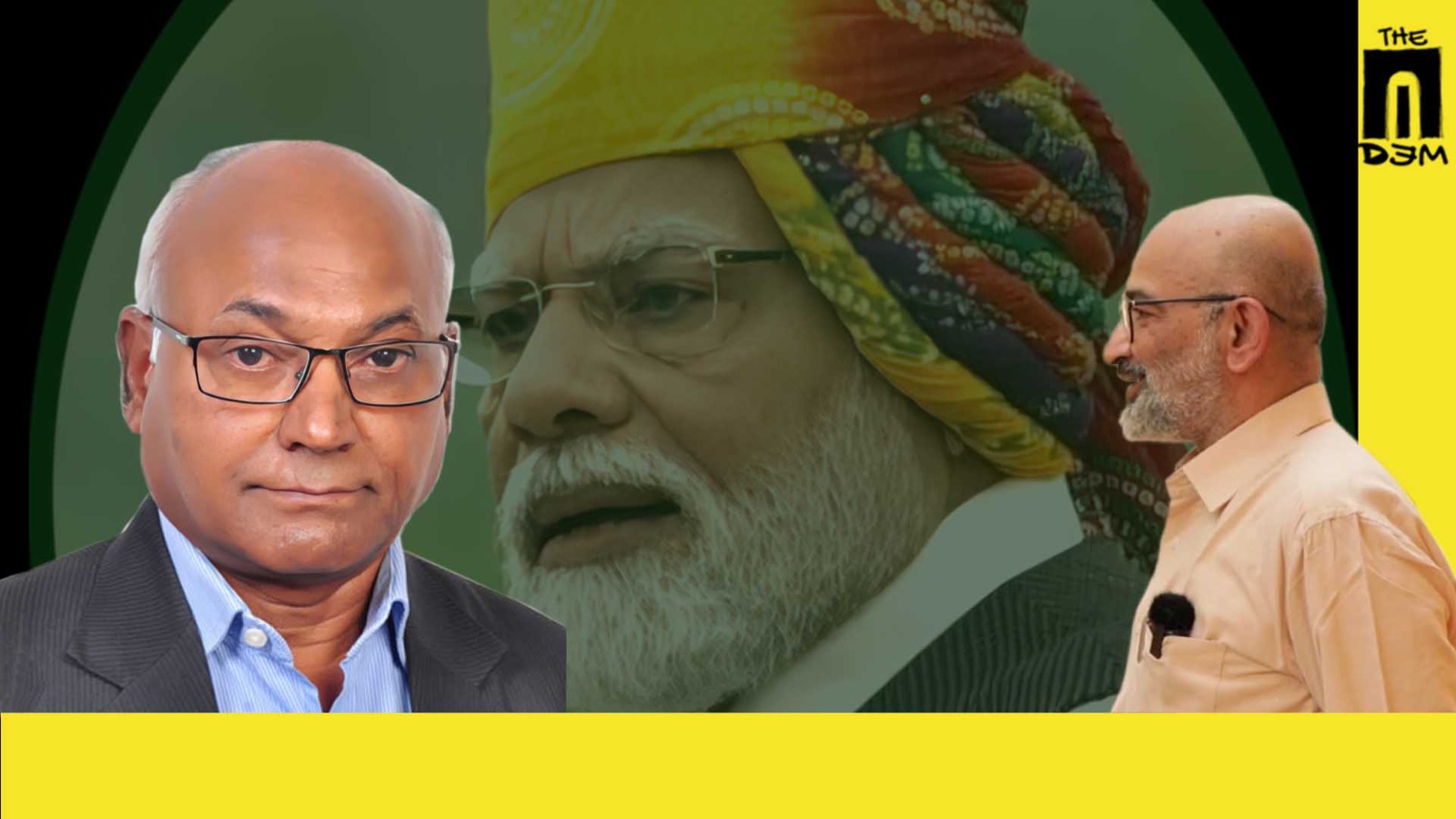



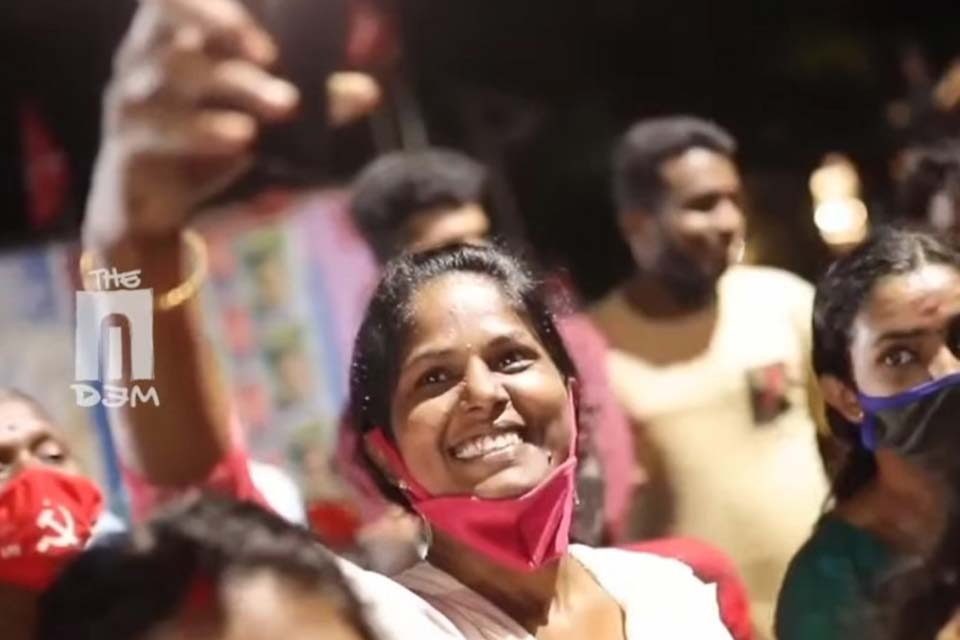

That’s one of the boldest, sharpest and most honest account of India 2023 . Thank you Apurva ji , Thank you Team Aidem